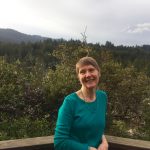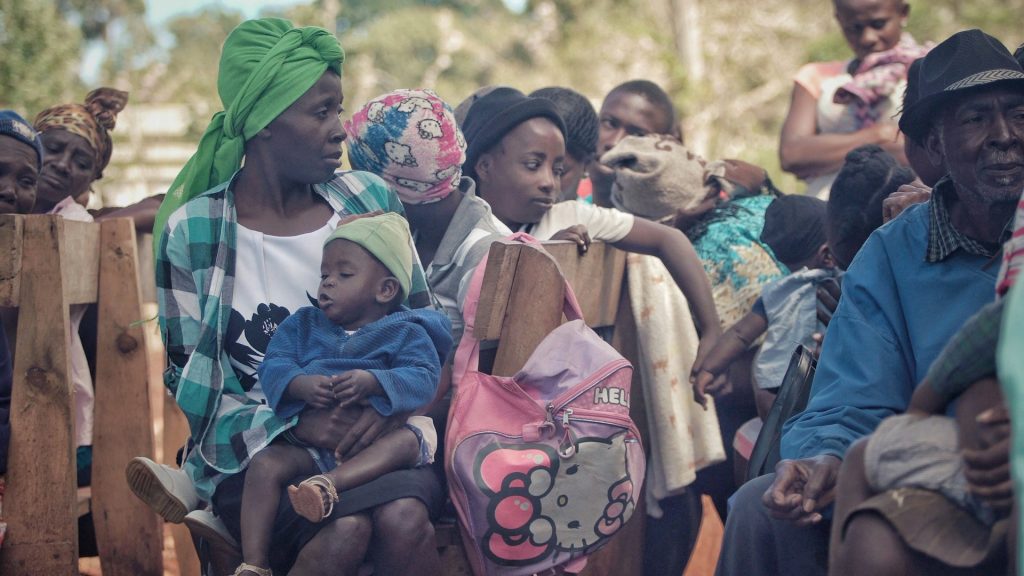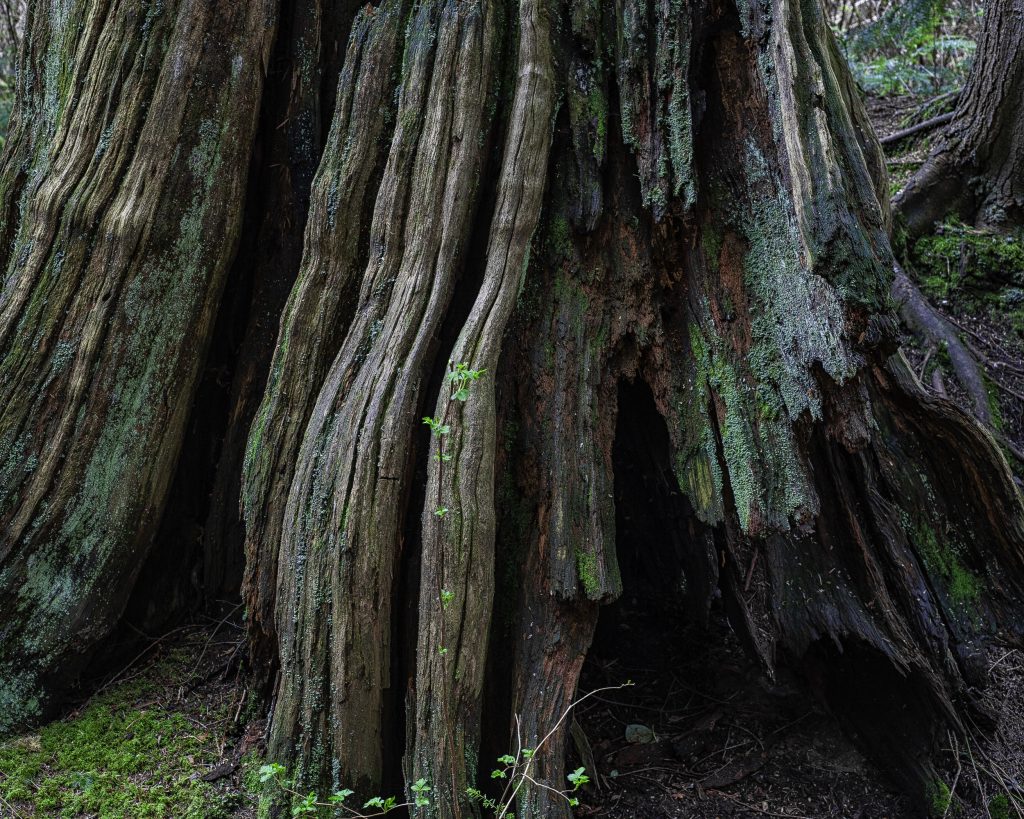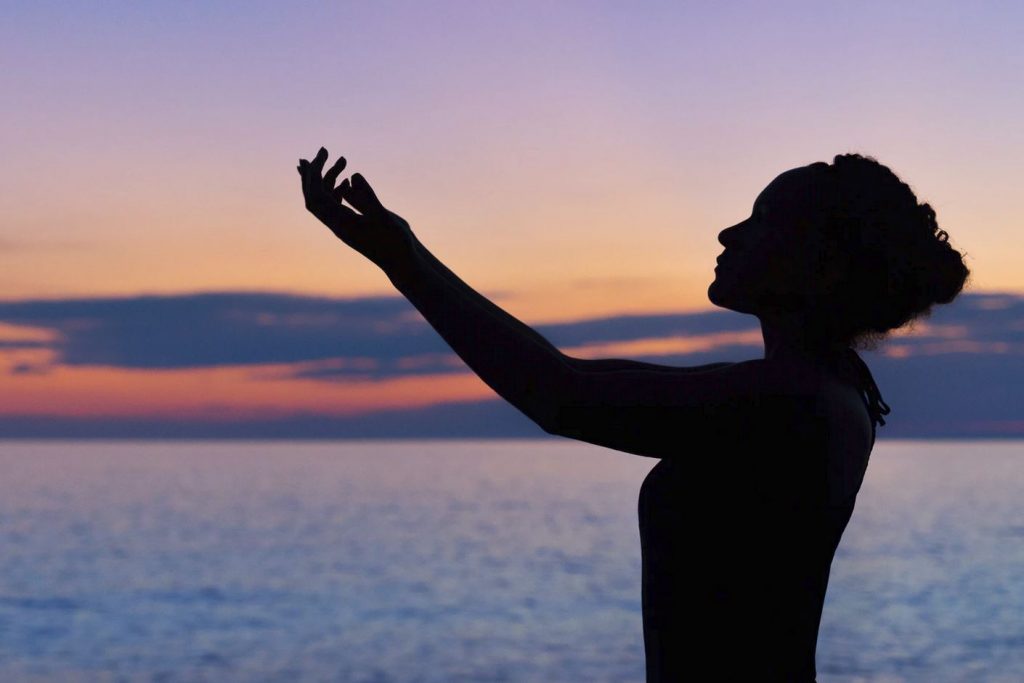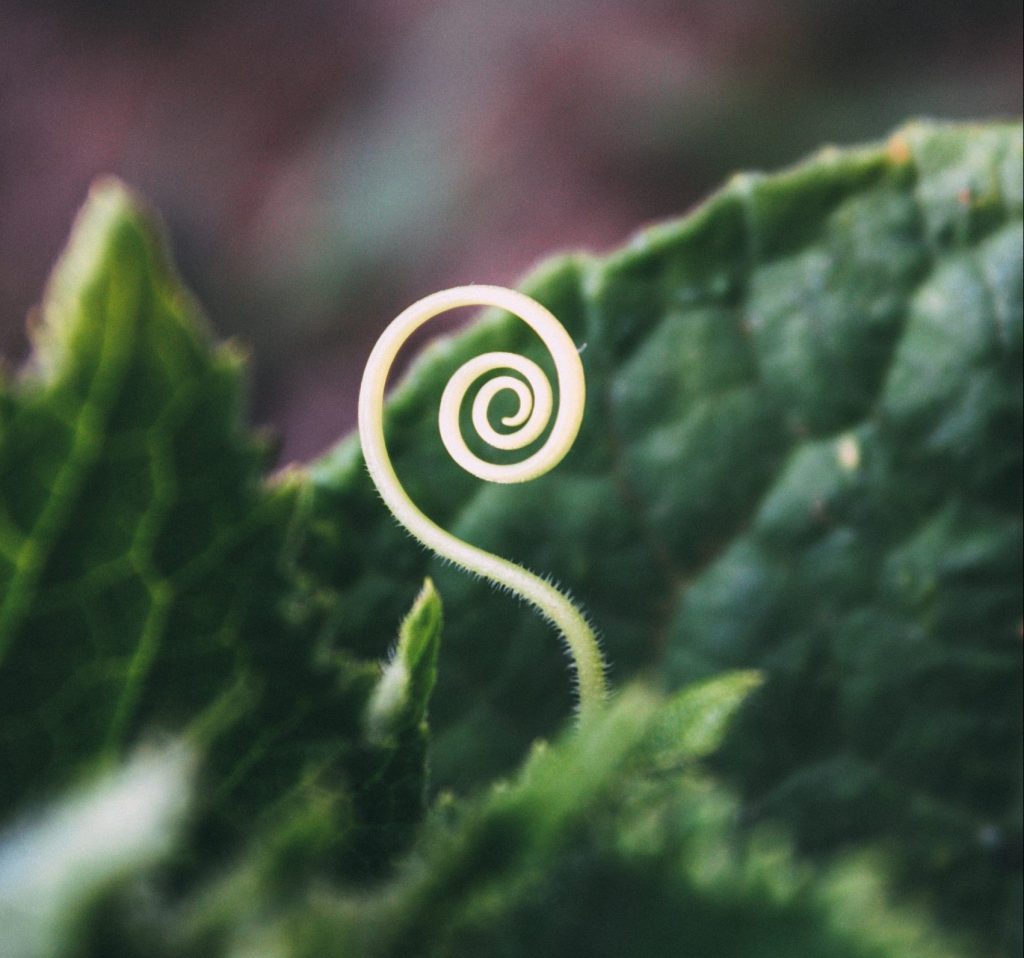Chama River Revelations
I recently spent silent time at a remote retreat center, nestled along the wild Chama River in northern New Mexico. This monastery, founded by Benedictine monks who live in year-round contemplative retreat, is available to seekers of any persuasion. My first night sleeping in the guesthouse, I had a numinous dream that I was lying in the lap of the Mother, reminiscent of the Pieta, but instead of Mary, the divine lap that held me was the Earth. Imagine the smooth, grey clay of the Chama riverbanks molded around my body.
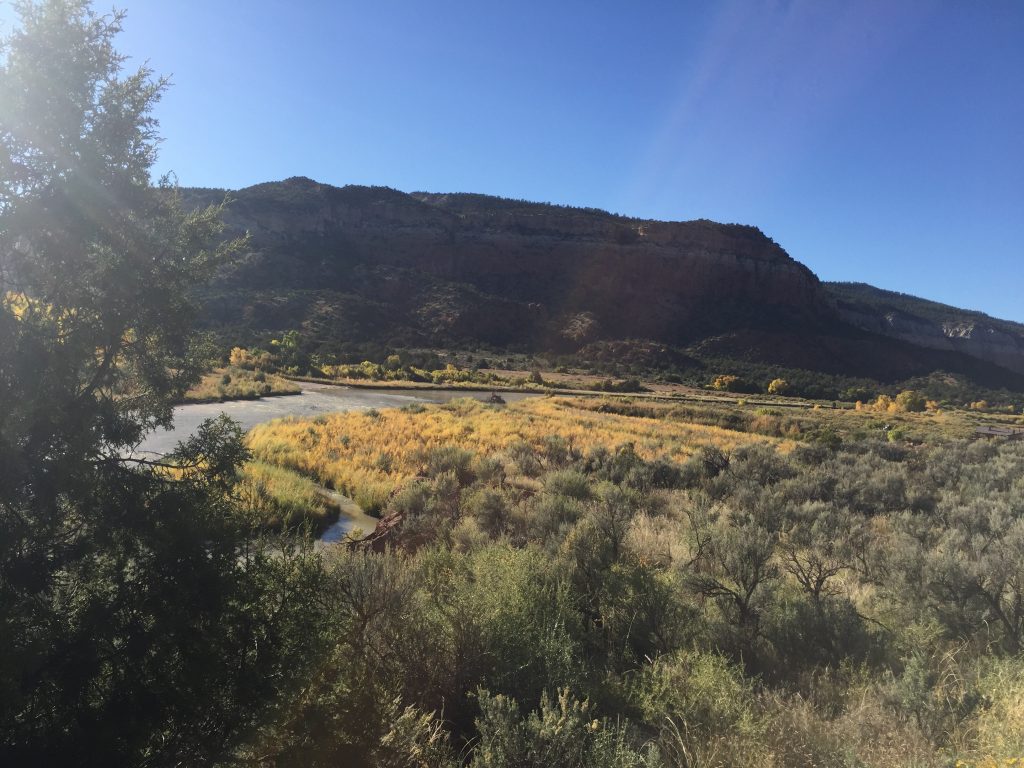
Waking up in the simple monastic room, buried words from Sunday school years found their way to my consciousness: “For God so loved the world, that he gave his one and only son…” It struck me that this was essentially the question I had come there to ponder: If I so love the Earth, what will I sacrifice, what will my acts of love be?
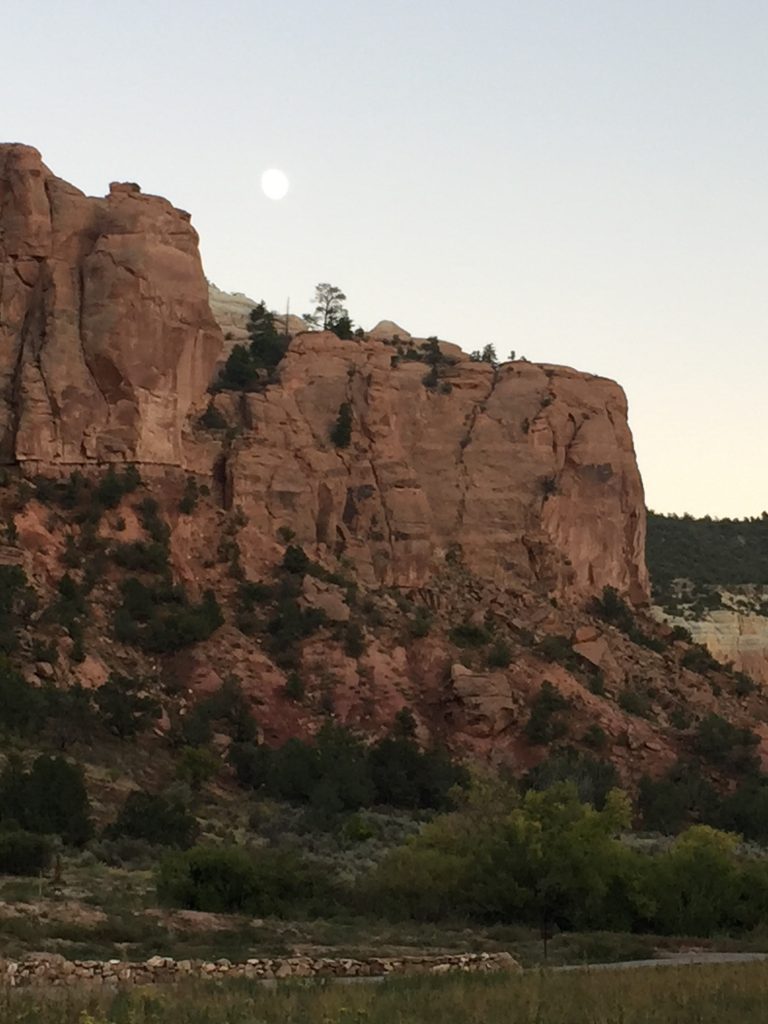
Is it profane to appropriate the words of the Bible for “secular” purposes? I gazed at the sheer, red cliff jutting from the sparse desert floor and recalled that one definition of profanity is to desecrate the sacred. What I believe is that the Earth—every speck of matter, every being—is sacred. Our disregard, our pillaging, is devastatingly profane.
I recall a hot afternoon some years ago sitting on my patio under the shade of an umbrella. Nothing seemed more important than noticing a lizard’s emphatic pushups, a hummingbird’s savoring of each salvia blossom, and the silver shimmer created by the interaction of light, wind, and pine needles.
Looking back, I am struck that each bit of beauty wasn’t followed by the cringing thought, “But how long will this exist? Will the hummingbird still hover fifty years from now? Will the salvia blossom still bloom? The pine needles quiver?”
Today, gorgeous moments aren’t so simple. I see impending loss as clearly as I see the scaly skin of the lizard. And I feel I must voice the unfortunate pairing of beauty and ruin as insistently as the noisy scrub jay perched on the pine branch.
As an introvert, I happily witness beauty alone, but I cannot sustain bearing witness to the destruction of what I love by myself. It is too brutal, too lonely. There are ways to distract from sorrow, to disconnect from pain, to turn away from the truth, but that is a luxury we no longer have.
What I love in the world is asking something of me—not only to reflect its beauty, but also to express its vulnerability, its potential demise. I notice fewer songbirds returning to my water fountain each season. I am observing an absence. How do I articulate the hole in the picture, the silenced voice?
We are in the midst of a phenomenon related to PTSD (Post Traumatic Stress Disorder), but instead of it being ‘post,’ it has become an ongoing traumatic stress as we witness the daily destruction of our planet’s life systems. I am naming it OTSD—Ongoing Transitional Stress Disorder. We are in a transition—rapid and major. If we resist, like pain, it only worsens.
Perhaps we can find new pathways by turning to the natural and indigenous world for guidance. Can we cock our head like the doe at the meadow’s edge, listening for whether to step boldly into the clearing or melt back into shadow? Sniff the air like coyote, relying on instincts that will guide paws one direction or another? Absorb the mother bear’s fierce protectiveness? Maybe we also need a plantlike sensibility, to soften like cottonwood leaves in a puddle, spill juice like blackberries at the end of summer.
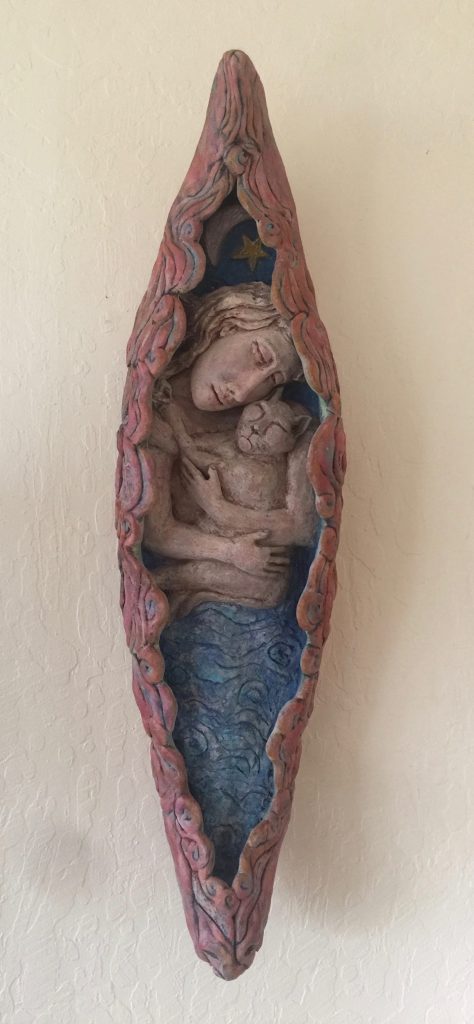
What is deep in our DNA that can instruct us? What do we know in our bones? What might our ancestors be whispering? We can’t simply think our way out of the devastation we’ve created. And we can’t depend on old world heroes like Noah orchestrating escape from the Flood for a chosen few.
My eyes are drawn to a clay sculpture mounted on my wall. It reminds me of my dream of the Mother’s earthen lap. A canoe is molded around a woman holding a small animal as tenderly as a human mother would hold her vulnerable child. The animal surrenders its body in absolute trust, folding into her flesh. Their eyes are closed, their heads touch. Perhaps they share a common dream, the nighttime version of a held gaze.
To find a new way, as habitats decline and the seas rise around us, we need maternal tenderness, the dream state, the language of flesh, and especially a shared boat that looks more like a cradle than a battleship. Alone, we are lost. If we travel lightly, holding each other, the rising tide can lift us from the muddy banks into the current. The river, never lost, always finds its way.


